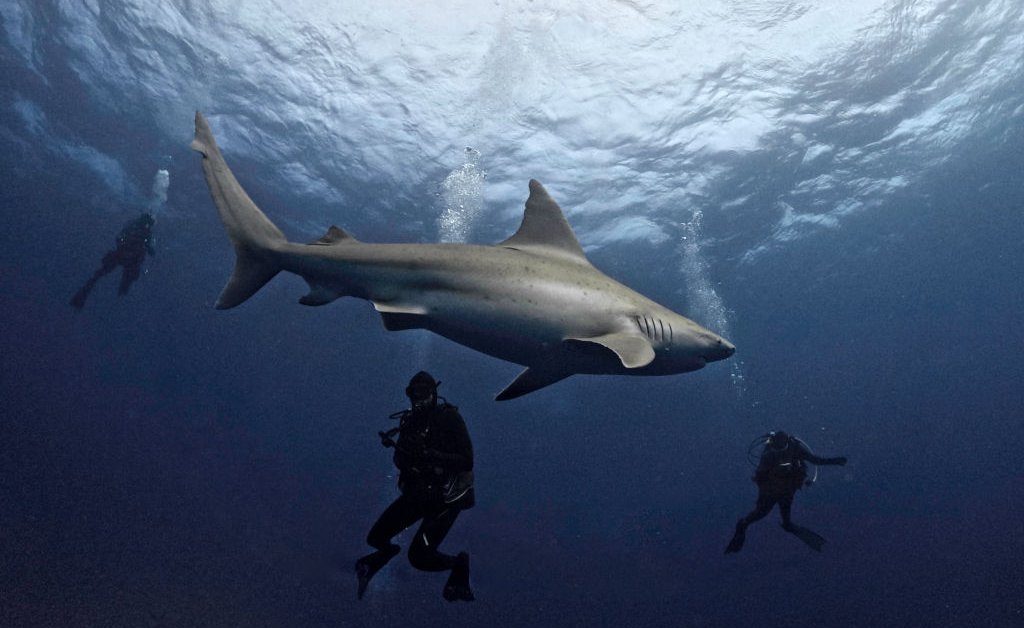Did Jaws Harm Marine Conservation? Assessing The Film's Legacy

Welcome to your ultimate source for breaking news, trending updates, and in-depth stories from around the world. Whether it's politics, technology, entertainment, sports, or lifestyle, we bring you real-time updates that keep you informed and ahead of the curve.
Our team works tirelessly to ensure you never miss a moment. From the latest developments in global events to the most talked-about topics on social media, our news platform is designed to deliver accurate and timely information, all in one place.
Stay in the know and join thousands of readers who trust us for reliable, up-to-date content. Explore our expertly curated articles and dive deeper into the stories that matter to you. Visit Best Website now and be part of the conversation. Don't miss out on the headlines that shape our world!
Table of Contents
Did Jaws Harm Marine Conservation? Assessing the Film's Legacy
Steven Spielberg's 1975 blockbuster, Jaws, terrified audiences worldwide with its depiction of a monstrous great white shark. But beyond the thrilling suspense, the film's legacy has sparked a complex debate: did Jaws inadvertently harm marine conservation efforts, fueling unnecessary fear and contributing to the persecution of these magnificent creatures?
The immediate aftermath of Jaws' release saw a significant spike in the killing of sharks. Fear, stoked by the film's portrayal of the apex predator as a relentless man-eater, led to widespread shark culling, with many coastal communities initiating organized hunts to "protect" their beaches. This brutal response, fueled by misinformed public perception, had a devastating impact on great white shark populations already vulnerable to overfishing.
The Myth of the Man-Eating Machine
Jaws undeniably sensationalized the threat posed by sharks. While great white shark attacks are rare occurrences – statistically far less dangerous than other activities like swimming in pools or driving cars – the film cemented the image of the great white as a bloodthirsty, human-hunting machine. This inaccurate portrayal contributed to a widespread misunderstanding of shark behavior and ecology.
The reality is that shark attacks are typically cases of mistaken identity, with the shark often investigating something that resembles its natural prey before quickly retreating. Understanding shark behavior is crucial for mitigating the risk of attacks, a fact largely overlooked in the wake of Jaws' release.
A Turning Point for Awareness?
However, the film's impact wasn't entirely negative. The controversy sparked by Jaws inadvertently highlighted the plight of sharks and the dangers of overfishing. The ensuing decades have seen a growing awareness of the crucial role sharks play in maintaining healthy ocean ecosystems. Conservation organizations, like the Pew Charitable Trusts and the Ocean Conservancy, now dedicate considerable resources to shark research, protection, and public education. These organizations work tirelessly to counter the misinformation perpetuated by films like Jaws, emphasizing the importance of these animals to the ocean's delicate balance.
From Fear to Understanding: A Shift in Perspective
In recent years, there has been a noticeable shift in public perception of sharks. Documentaries like the BBC's Planet Earth II have showcased the beauty and complexity of these creatures, helping to dispel some of the myths perpetuated by earlier media portrayals. This renewed understanding has led to increased support for shark conservation initiatives and stricter regulations on fishing practices.
The Long-Term Impact:
While Jaws undeniably contributed to a period of intense shark culling, its legacy is more nuanced. The subsequent wave of concern for shark conservation, driven partly by the very fear the film instilled, ultimately led to a greater appreciation for these vital marine animals and the importance of protecting them. The debate surrounding Jaws' impact continues to serve as a reminder of the powerful influence media can have on shaping public perception and the importance of responsible reporting on environmental issues. This underscores the need for accurate, science-based information to counter harmful misconceptions and promote effective conservation strategies. What's your take on the film's legacy? Share your thoughts in the comments below!

Thank you for visiting our website, your trusted source for the latest updates and in-depth coverage on Did Jaws Harm Marine Conservation? Assessing The Film's Legacy. We're committed to keeping you informed with timely and accurate information to meet your curiosity and needs.
If you have any questions, suggestions, or feedback, we'd love to hear from you. Your insights are valuable to us and help us improve to serve you better. Feel free to reach out through our contact page.
Don't forget to bookmark our website and check back regularly for the latest headlines and trending topics. See you next time, and thank you for being part of our growing community!
Featured Posts
-
 Todays Stock Market S And P 500 And Nasdaq Fall Amidst Rising Interest Rates And Geopolitical Risks
Jun 21, 2025
Todays Stock Market S And P 500 And Nasdaq Fall Amidst Rising Interest Rates And Geopolitical Risks
Jun 21, 2025 -
 Keshas Tits Out Tour Dates Revealed Special Guests Slayyyter And Rose Gray
Jun 21, 2025
Keshas Tits Out Tour Dates Revealed Special Guests Slayyyter And Rose Gray
Jun 21, 2025 -
 Did Kamala Harris Reach Out To Mark Cuban For The Vp Slot
Jun 21, 2025
Did Kamala Harris Reach Out To Mark Cuban For The Vp Slot
Jun 21, 2025 -
 Keshas Tits Out Tour Dates Tickets And Special Guests
Jun 21, 2025
Keshas Tits Out Tour Dates Tickets And Special Guests
Jun 21, 2025 -
 Start Time Team News And Lineups Bayern Munich Vs Boca Juniors Club World Cup Clash
Jun 21, 2025
Start Time Team News And Lineups Bayern Munich Vs Boca Juniors Club World Cup Clash
Jun 21, 2025
